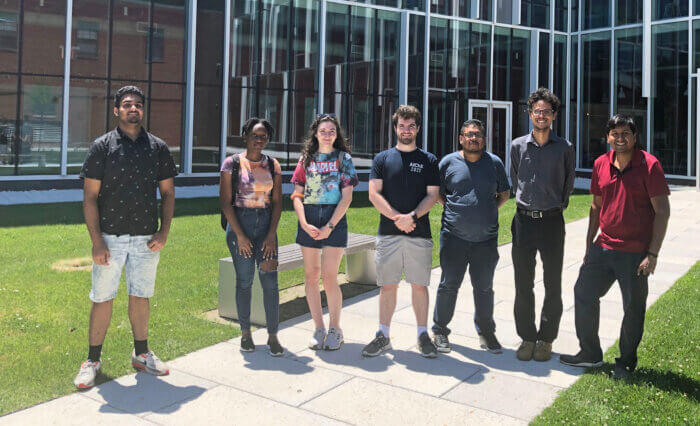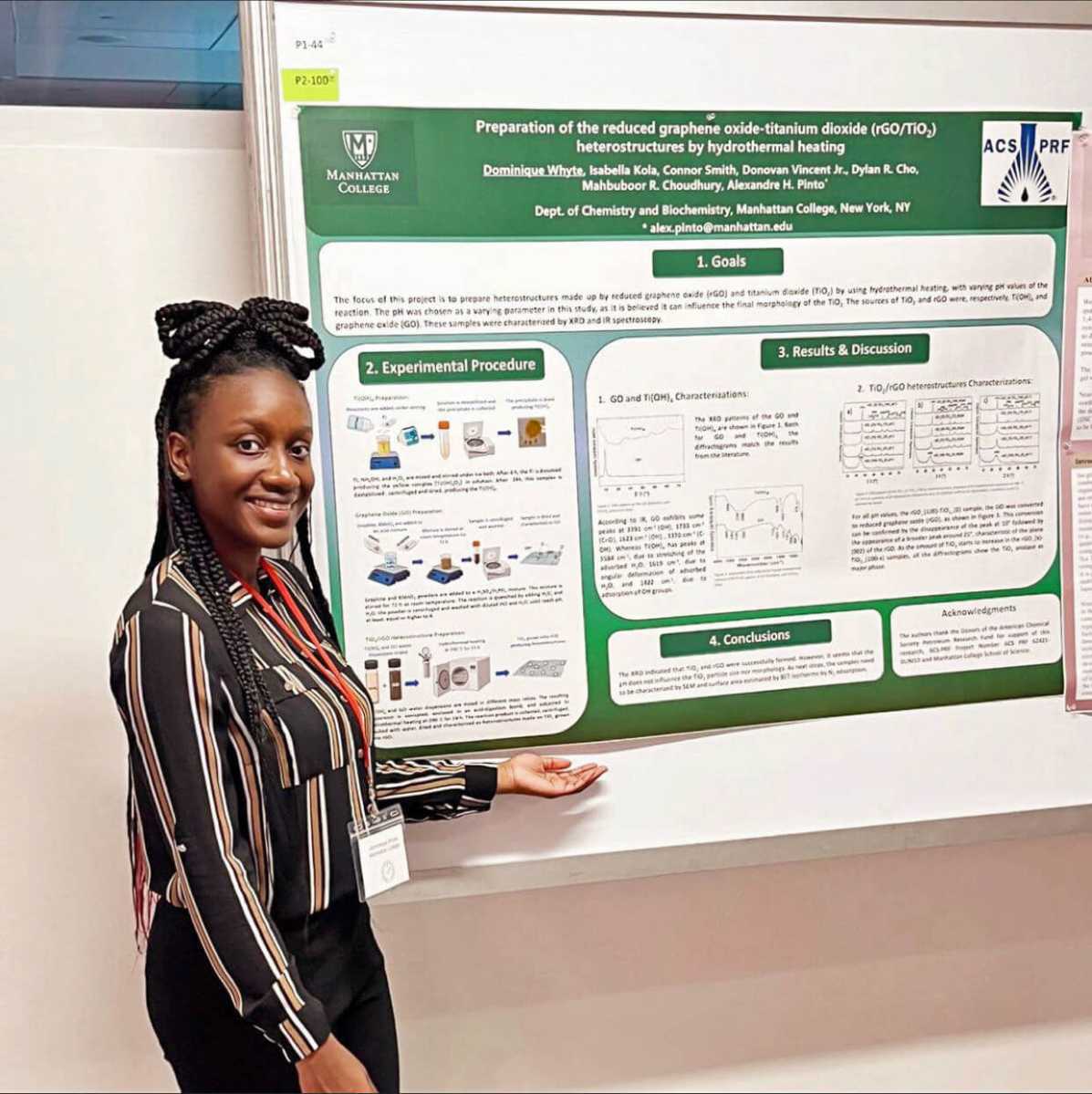Dominique Whyte was born and raised in Manchester, Jamaica. She was raised by a single mom, whose dream was for her daughter to be a medical doctor. Whyte quickly adopted the dream.
During her time at Manchester High School, she enjoyed her science, technology, engineering, and math (STEM) classes, specifically math, chemistry and physics. It was during her junior year there that she became more interested in going into the engineering field, following encouragement from her teacher at the time, Mr. Harrison.
“I excelled in his class, so he made the suggestion that I may leave his class wanting to become an engineer. He was not wrong. It is also imperative to mention that in my Electrical and Electronics Technology class, there were only two females, myself included,” she said. Both Whyte and the other female were amongst the top, if not the top, students in the class.
She states her mom, who is an underpaid teacher, and her faith in God as her biggest influences in her life.
Later that school year, she made her decision to become a chemical engineer. She applied to several colleges in other countries, as well as her own. She was accepted to many and offered scholarships. However, Manhattan College was the one she applied to, receiving a scholarship that covered more than half of her tuition, in New York State, allowing her to live amongst her family members.
“My mom taught me the importance of hard work and love for others. I would not be where I am without her encouragement. She was the one who gave me the determination that I have, and the personal standards that I set for myself. And without God, I would not be at Manhattan College,” she continued.
She is now a sophomore at Manhattan College majoring in chemical engineering. She is now working on a research project, funded by a $55,000 grant from the American Chemical Society Petroleum Research Fund.
With this project, she and her team aim to reduce and filter sulfur content from petroleum and fossil fuels. According to the U.S. Environmental Protection Agency (EPA), sulfuric acid is a major component of acid rain, which can damage forests and crops, change the acidity of soils, and make lakes and streams unsuitable for aquatic wildlife.
Whyte’s research advisor Alexandre H. Pinto is an assistant professor for chemistry and biochemistry at Manhattan College. He shared more details on the process of desulphurization, which Whyte and her team are aiming to do in two ways.
“One of them is the absorption, which is basically the deposition of the contaminant material in the surface of the solid nanomaterials. The second mechanism is photocatalysis, which is based on the absorption of light of a specific energy range, by a semiconductor material, in this case, the titanium dioxide that we prepare in our lab. Once this semiconductor absorbs that light, it can create reactive species that are capable of degrading sulfur-containing molecules,” Pinto said.

He also shared ways in which compounds containing sulfur are bad for petroleum and automotive industries, as well as the environment.
“For the petroleum industry, the sulfur presence progressively damages their machinery and requires an expensive process for the sulfur elimination. For the automotive industry, it is bad because a lower quality fuel will be used in the vehicles, and for the environment, it is bad because when the vehicle burns these sulfur-containing fuels, sulfur oxides are released in the atmosphere, contributing to the acid rain formation,” he added.
Some of Whyte’s favorite moments in her research have included the times spent working,
experimenting, troubleshooting, and manipulating tasks with her peers.
“It was a great opportunity to get to experience a part of American culture firsthand, as well as to meet phenomenal personalities. As a black woman in STEM, I felt comfortable,” said Whyte.
Black women only hold 1% of all engineering degrees in the United States, according to the National Science Foundation (NSF). According to USA Today, although Black and white students enter STEM majors at the same rate (20%), Black students leave those majors at a rate of 40%, compared with 29% percent of white students.
Pinto stated that he is very fortunate to have dedicated students working on this research at Manhattan College. “I think Dominique and the other students involved in this research can inspire the future students to be committed young scientists and engineers, and let them see how fascinating scientific research can be,” he continued.
Furthermore, Whyte hopes that this project forces everyone to realize the importance of taking care of our planet. “We’re on earth as stewards, we need to take care of the planet and in doing so we can ensure that the future generations have similar or better privileges in living on earth,” Whyte continued. “It feels great to know that the research I am doing may better our living experiences as well as those who will come after us. Though this research solves only a small part of the environmental issues, it is still one step closer to improving sustainable development.”
Whyte loves spending time with my family and friends, and one of her favorite things to do is laugh. “It doesn’t matter who I’m with, or what I’m doing. I love being able to bring laughter into what feel like serious moments. You’re able to escape from all of your problems in that single moment, and I think that’s beautiful,” she said.
Whyte now knows how much of a deal being a black woman in STEM is, having been in the U.S. for a few years. “I stand as an encouragement for other black girls who may have felt that they can not get this far in a predominantly white male field,” she said. “I will use this platform to say that there might be a fight, but to remember that there is always someone willing to fight alongside you and to support you no matter how small. There are people rooting for you, even people that you may not even know.”


























